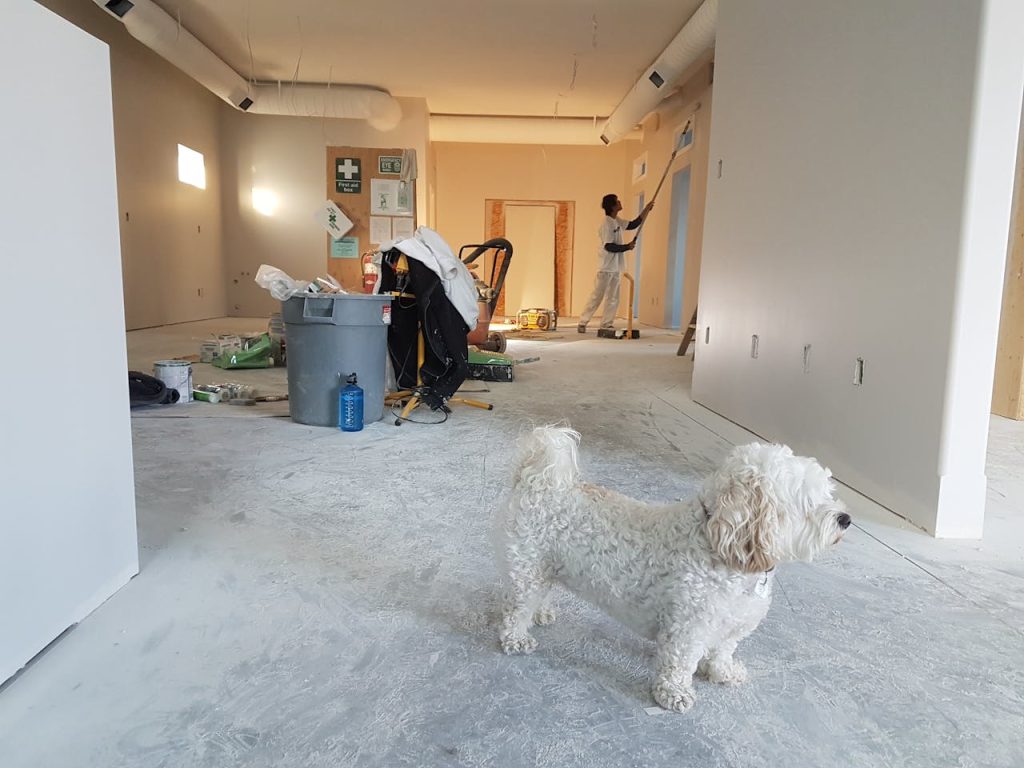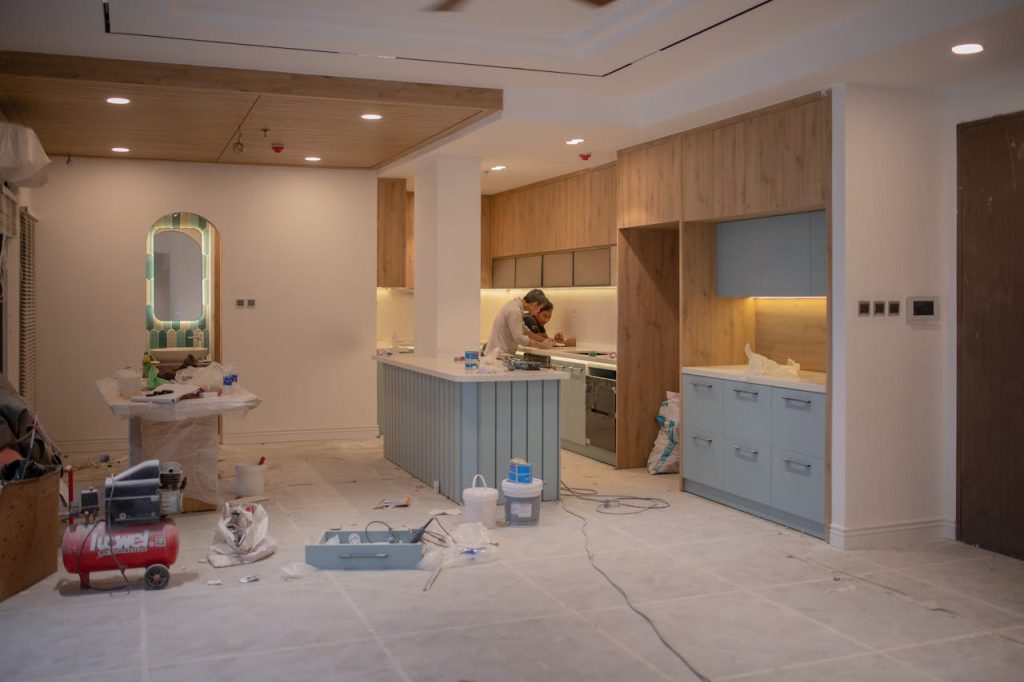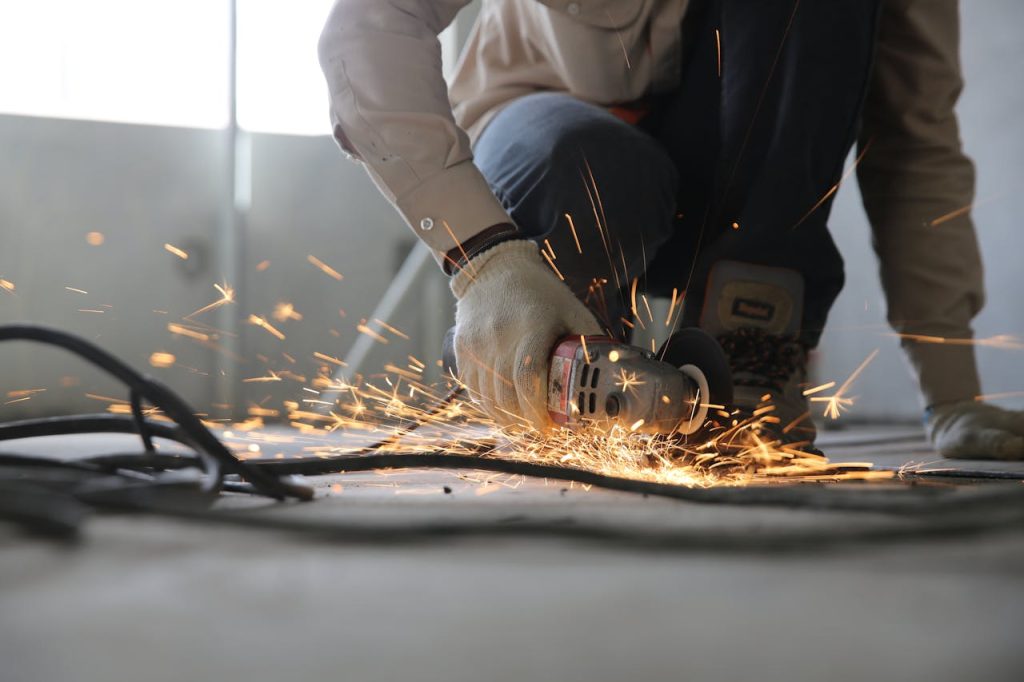Understanding Unpermitted Work
Homeowners often upgrade or change their homes. But sometimes, they forget to secure the permits from local building authorities. This section looks at common types of unpermitted work. It also examines why people often make these choices.
Common Types of Unapproved Home Additions and Upgrades
- • Room Additions
- • Garage Conversions
- • Deck and Patio Builds
- • Electrical and Plumbing Work
Reasons Why Homeowners Might Undertake Unpermitted Work
- • Cost Savings: Getting permits can cost a lot and take time. Some people skip the process. They do this to save money and start their projects faster.
- • Lack of Awareness: Some homeowners may not know they need permits. This often happens when they believe they are making small gains.
- • Avoiding Bureaucracy: Getting permits can take a long time and be complicated. Homeowners often skip the official steps.
- • Immediate Needs: Homeowners can skip permits for urgent repairs or changes. They do this to quickly fix urgent living problems or functional issues.
Unpermitted Work? No Problem – Sell As-Is!
Skip the legal hassles and sell your home today. Get a Cash Offer
Legal Implications of Unpermitted Work
Doing unpermitted work on a home can harm its structure and lower its market value. It also comes with serious legal issues. Homeowners should know the risks of selling a property with unapproved changes or upgrades.
Real Estate Disclosure Laws: Obligation to Disclose Unpermitted Work
Sellers need to share key information about the property with potential buyers. This includes any work done without permits. These laws protect buyers from surprise liabilities. They ensure everyone knows the details before a deal. Hiding this information from buyers can lead to legal problems and fines. This shows how crucial it is to be open in real estate deals.
Potential Legal Risks of Unpermitted Work
- • Fines: Local governments can fine homeowners who start work without permits. Fines can be high based on how much-unpermitted work has been done.
- • Mandated Corrections: Homeowners may need to fix or redo work as required by local authorities. This makes sure that it follows building codes and safety rules. This can involve significant expenses and disruptions.
- • Legal Actions: New homeowners may have problems if they find unpermitted work that the seller hid. They can take legal action against the seller, which can be expensive.
Impact on Mortgage Approval with Unpermitted Work
- • Lender Apprehensions: Many lenders hesitate to finance a sale. They want to make sure the property follows all local building codes and rules. Unpermitted work can cause appraisal problems. The property may not be worth as much as expected because of correction costs.
- • Insurance Challenges: Getting homeowners' insurance can be tricky. Insurance companies view unpermitted work as a bigger risk.
- • Loan Rejections: Unapproved work can lead to mortgage applications being denied. Lenders see these investments as too risky if they don’t follow local laws.

Effects on the Home Sale Process
Selling a home with unpermitted work can be tough. These issues can affect the sale process in many ways. Homeowners should be aware of these effects when they list or negotiate their property.
Challenges of Selling a Home with Code Violations
- • Inspection Issues: Home inspections can find unpermitted work. This may cause delays or even cancel potential sales.
- • Legal Compliance: Local authorities might ask homeowners to fix any code violations before they can sell. This could mean expensive repairs or legal steps.
- • Negotiation Leverage: Buyers often use code violations to negotiate. They might ask for lower prices. They may also want the violations fixed before buying.
How Unpermitted Work Affects Home Buyers
- • Risk Aversion: Many buyers worry about legal and financial issues from unpermitted work. This concern can stop them from going ahead with a purchase.
- • Financing Challenges: Lenders often hesitate to fund homes with unpermitted work. So, buyers who need a mortgage may back out of a deal to prevent loan rejection.
- • Future Liability Concerns: Buyers may worry about issues arising from unpermitted work. These can lead to disputes with local authorities or extra costs to fix the home.
Adverse Effects on Property Valuation and Marketability
- • Lower Appraisals: Properties with unpermitted work often appraise lower than similar ones that follow local rules. This difference shows the risks and costs that new owners may face.
- • Reduced Market Pool: Some buyers, especially those who avoid risk, may skip homes with unpermitted work. They often prefer ready-to-move-in options. This cuts down the number of potential buyers.
- • Marketing Challenges: Realtors may find it harder to market these properties. They need to focus on being open and honest. So, they have to point out the property's less appealing aspects.
Trouble Selling Due to Code Violations?
We buy homes in any condition—unpermitted work is no issue! Get a No-Obligation Offer
Options for Homeowners
Homeowners with unpermitted work have a few choices to make before selling. Each option has its factors to think about and possible outcomes.
Pros and Cons of Selling Without Fixing Unpermitted Work
Pros:
- • Speed: Selling as-is can speed up the sale. It skips the wait for permits and fixes.
- • Ease: This method eases the seller's load. They won't have to do extra work on the property.
Cons:
- • Lower Offers: Potential buyers might offer a lower price. They do this to cover the risks and costs of fixing the unpermitted work.
- • Limited Buyer Pool: Some buyers, especially those with financing, may steer clear of an as-is property. Unpermitted work can cause problems.
Strategies for Attracting Buyers Despite Unpermitted Work
- • Transparent Pricing: Adjust the price based on the home's condition. This will attract buyers who are ready to tackle projects.
- • Highlighting Potential: Highlight what the property can do. Buyers can customize the unpermitted areas to suit their style.
- • Offering Detailed Information: Share all documents and details on the unpermitted work. This helps buyers grasp the situation more clearly.
Benefits of Selling a House with Unpermitted Work to Cash Home Buyers
Doctor Homes and similar companies buy homes for cash as-is. This is helpful, especially with unpermitted work.
- • No Need for Loan Approval: Cash buyers can skip mortgage approval. This helps them avoid a big hurdle when selling a non-compliant home.
- • Fast Closing: Cash sales often close faster than traditional sales, sometimes in just a few weeks.
- • Less Risk of Sale Falling Through: Cash deals are less likely to fail because there are no financing problems from unpermitted work.
Disclosing Unpermitted Work: Importance of Transparency and Legal Obligations
Revealing any unapproved work is a legal must. It also helps keep trust and integrity in the deal. Transparency lets everyone know the property's condition. This helps them make informed choices.
How to Tell Buyers About Unpermitted Work
- • Detailed Disclosure Forms: Use the standard disclosure forms. List any changes that aren’t permitted.
- • Additional Documentation: Share any sketches, plans, or receipts for the unpermitted work.
- • Honest Communication: Be ready to talk about how the unpermitted work started. Also, share any steps you've taken to check its impact.
Legalizing Unpermitted Work with Retroactive Permits
- • Inspection by Authorities: The local building department will review any work done without a permit. They will see what needs to be done to meet the code.
- • Application for Permits: The homeowner needs to get the correct permits after the inspection. You may need plans from a licensed contractor or an architect.
- • Making Necessary Modifications: The homeowner may need to update the work to follow today's building codes.
Potential Costs and Timeframes Involved
- • Costs: The cost to get work permitted after it’s done can change a lot. It depends on how much needs to be modified and what local authorities charge.
- • Timeframes: The process may take a few weeks to several months. It depends on how complex the work is and how efficient the local building department is.

Final Thoughts: How to Sell a Home with Unpermitted Work
Can you sell a house with unpermitted work? Doing so can be quite challenging. You could run into legal problems and see a drop in market value. Knowing these challenges and your options is very helpful. You can sell your home as-is to a cash buyer like Doctor Homes. This simplifies things, even with the complexities.
FAQs about Can You Sell a House with Unpermitted Work
Can I sell my house if it has unpermitted work?
Yes, you can sell a house with unpermitted work. However, you must inform the buyer about these issues.
How does unpermitted work affect my home's value?
Doing work without a permit can decrease your home's value. This may result in lower offers from buyers.
What are the risks of not disclosing unpermitted work to buyers?
Hiding unapproved work can cause legal problems. This includes fines and possible lawsuits.
Is it possible to get a permit after the work has been completed?
Homeowners can apply for permits to legalize unpermitted work. However, this process can be detailed and costly.
Will unpermitted work affect a buyer's ability to secure a mortgage?
Yes, lenders need homes to meet local building codes to approve a mortgage. This can be a problem for homes that have unpermitted work.




